Discover effective and proven strategies to alleviate swollen feet with our comprehensive guide. Dive into lifestyle changes, home remedies, and medical interventions designed to bring you comfort and improve your health. Say goodbye to discomfort and hello to relief today!
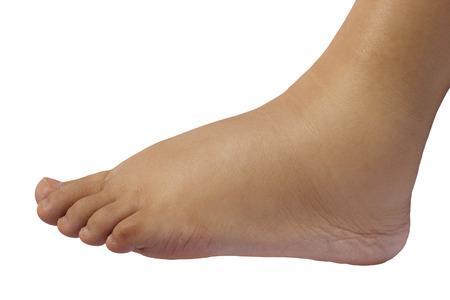
Introduction
Swollen feet are a common discomfort affecting many individuals due to various factors ranging from everyday habits to underlying health conditions. Understanding the causes and recognizing the signs are the first steps toward effective management and treatment. This guide delves into practical lifestyle adjustments, home remedies, and medical solutions to help you find relief and improve your overall well-being.
Table of Contents
Exploring the Reasons Behind Swollen Feet
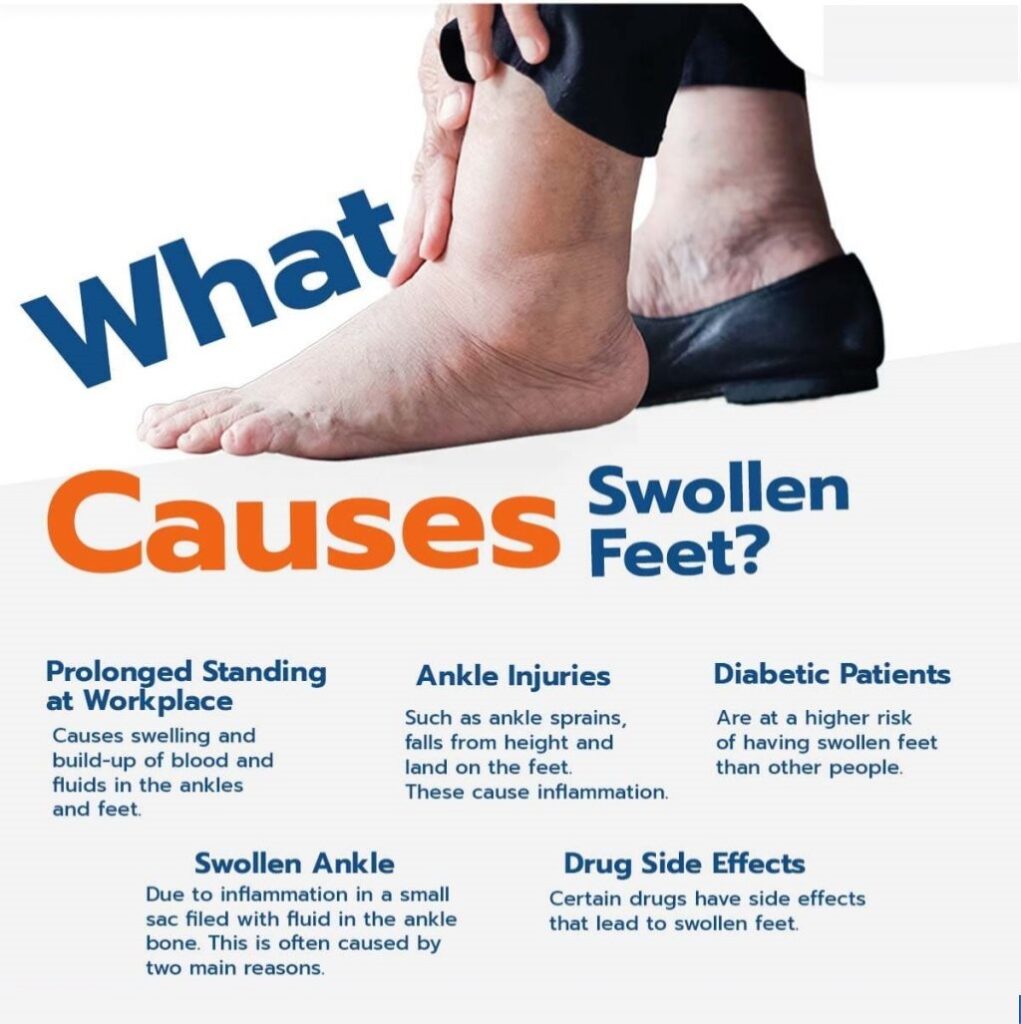
Swollen feet are a frequent issue that many people encounter, stemming from a variety of sources, including everyday habits and underlying health conditions. Here’s an overview of the main reasons why feet might swell:
Extended Periods of Inactivity
Explanation: When you stand or sit for too long, gravity causes fluids to accumulate in your feet and legs, resulting in swelling.
Excess Body Weight
Consequence: Extra body weight exerts more pressure on your feet, which can cause fluids to build up and lead to swelling.
Aging
Rationale: With aging, circulation within the body tends to decrease, which can cause the feet and ankles to swell, particularly in older individuals.
Pregnancy
Impact: Pregnancy induces numerous changes in the body, including increased fluid retention and alterations in blood chemistry, which are vital for fetal development. The growing uterus also exerts pressure on pelvic veins, impacting blood flow and possibly causing feet to swell. While mild swelling is typical, sudden or intense swelling may indicate preeclampsia, a serious condition requiring immediate medical attention.
Injuries
Mechanism: Injuries to the foot or ankle, such as sprains, fractures, or strains, initiate an inflammatory response in the body, leading to swelling as a protective and healing measure.
Lymphedema
Definition: This condition involves swelling due to a blockage in the lymphatic system, which hampers the drainage of lymph fluid, causing swelling in the feet and legs.
Side Effects of Medication
Common Culprits:
- Antidepressants (like tricyclics and MAO inhibitors) may lead to fluid retention.
- Blood Pressure Medications, especially calcium channel blockers, are known to cause swelling in the feet and ankles.
- Steroids, whether taken systemically or locally, can contribute to fluid retention.
- NSAIDs might cause fluid retention in some individuals.
- Diabetes Medications have been linked to swelling in some cases.
If you suspect that medication is the cause of swelling, it’s important to consult with a healthcare provider for advice on managing or adjusting your medication, rather than stopping it on your own. They can offer recommendations on how to reduce swelling or suggest alternative treatments.
Recognizing the Signs of Swollen Feet
It’s crucial to be aware of the signs of Swollen Feet to determine the appropriate time to consult a healthcare provider. Here are the primary symptoms associated with foot swelling:
| Increased Foot Size |
| You might notice that your feet have grown in size, leading to a tighter fit in your footwear. |
| Puffiness |
| This symptom is typically most noticeable around the ankles and the tops of the feet, where it gives the feet a swollen look. |
| Changes in Skin Appearance |
| The skin over the swollen areas may seem stretched out, shiny, or unusually thin. |
| Pitting Edema |
| If pressing down on the swollen area for a few seconds leaves an indentation, this could be a sign of pitting edema. |
| Discomfort and Pain |
| Swelling can lead to discomfort or pain, which may worsen with activities like standing, walking, or applying pressure. |
| Restricted Joint Movement |
| The swelling can limit the normal movement of your joints, making it difficult to walk or move freely. |
| Skin Color Alterations |
| You might observe changes in skin color over the swollen area, such as redness, a pale complexion, or a bluish tint, depending on the underlying cause. |
| Warmth in the Affected Area |
| The swollen region may feel warmer to the touch compared to the rest of your body. |
| Associated Weight Gain |
| Swelling, especially when it’s due to fluid retention, can be accompanied by a rapid increase in weight. |
Managing and Treating Swollen Feet: A Comprehensive Guide
Swollen feet can be both uncomfortable and worrisome, but with the correct strategies, you can alleviate the discomfort and tackle the root causes. This guide provides a detailed approach to managing and treating swollen feet through lifestyle changes, home remedies, and medical interventions.
Lifestyle Adjustments and Home Remedies
Elevating Your Feet
Raising your feet above the level of your heart can enhance circulation and assist in reducing swelling. When lying down, use pillows to elevate your legs, aiming to do this multiple times a day, especially after long periods of standing or sitting.
Regular Exercise
Participating in consistent physical activity helps improve blood circulation, preventing the accumulation of fluid in your legs and feet. Beneficial activities include walking, swimming, or cycling, and even simple ankle rotations can help enhance circulation.
Compression Stockings
These specialized garments apply gentle pressure to your legs, aiding in better blood circulation and reducing fluid buildup. It’s important to choose compression stockings with the correct level of compression and to wear them mainly in the morning for effective swelling control.
Limiting Salt Intake
Excessive sodium consumption can cause water retention, worsening foot swelling. Adopt a low-salt diet by reducing processed foods and flavoring your dishes with herbs and spices instead.

Hydration
Drinking enough water is crucial for eliminating toxins and minimizing fluid retention. Strive for 8-10 glasses of water a day, adjusting for your activity level and environmental conditions.

Choosing the Right Footwear
Selecting shoes that provide adequate support can significantly alleviate swelling. Opt for shoes that fit well, offer good arch support, and have a cushioned sole, avoiding those with tight straps or high heels.
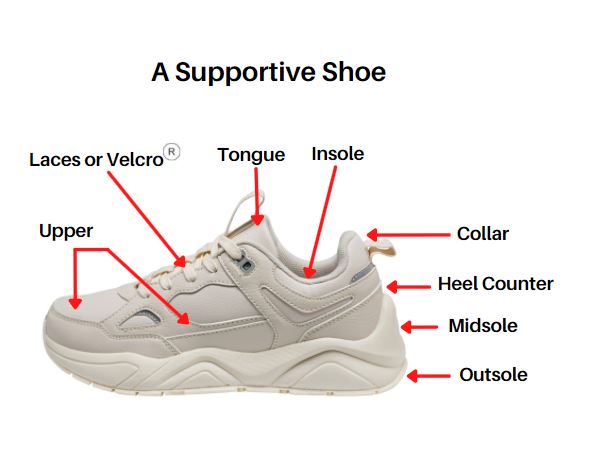
Weight Management
Being overweight can increase the pressure on your feet, causing swelling. Maintaining a healthy weight through a balanced diet and regular exercise is beneficial.

Avoid Prolonged Standing or Sitting
Staying mobile is essential for promoting blood flow. If your job requires you to sit or stand for extended periods, make sure to take regular breaks to move around.

Cool Compresses
Applying cold packs can offer temporary relief from swelling by narrowing blood vessels and reducing inflammation. Always wrap ice or cold packs in a cloth before applying to the skin for 15-20 minutes at a time.

Medical Interventions
Medications
Diuretics: Also known as water pills, these medications help your body expel excess salt and water through urine, which can decrease swelling. They should be taken under a doctor’s supervision to prevent electrolyte imbalances.
Medication Adjustments: If swelling is a side effect of your current medication, discuss possible adjustments or alternatives with your doctor.

Managing Chronic Conditions: Effectively controlling conditions like diabetes, heart disease, and kidney disease can help reduce swelling. This may involve changes to medication, diet, and regular medical checkups.
Physical Therapy
Improving Circulation: Customized exercise programs can enhance blood and lymph circulation, diminishing swelling. These might include stretches, strength training, and aerobic exercises.
Manual Therapy: Massage and lymphatic drainage techniques can help move fluid out of swollen areas.
Educational Support: Physical therapists can provide advice on self-care strategies, including exercises to do at home and how to use compression garments.
Surgery
For certain individuals, surgery might be necessary to correct structural issues causing swelling, such as blockages in the lymphatic system or venous insufficiency. Surgical options vary from minimally invasive to more comprehensive procedures, depending on the underlying cause.
When to Consult a Doctor
- Persistent Swelling: If swelling does not improve with home remedies or worsens, it’s important to seek medical advice.
- Worrying Symptoms: If swelling is accompanied by pain, redness, or warmth, it could indicate a more serious condition that requires immediate medical attention.
- Existing Health Conditions: Those with heart, kidney, or liver disease should consult their doctor if swelling increases, as this could be a sign of a complication.
By integrating lifestyle changes, home remedies, and medical treatments, you can effectively manage swollen feet, enhancing your comfort and overall health.
Frequently Asked Questions
Q: What are the main causes of swollen feet?
A: Swollen feet can result from extended periods of inactivity, excess body weight, aging, pregnancy, injuries, lymphedema, and side effects of certain medications.
Q: How can I reduce swelling in my feet at home?
A: Elevating your feet, engaging in regular exercise, wearing compression stockings, limiting salt intake, staying hydrated, choosing supportive footwear, managing your weight, avoiding prolonged standing or sitting, and applying cool compresses can all help reduce swelling.
Q: When should I consult a doctor for swollen feet?
A: You should seek medical advice if the swelling persists, worsens, or is accompanied by pain, redness, warmth, or if you have existing heart, kidney, or liver disease.
Q: Can medication cause swollen feet?
A: Yes, certain medications like antidepressants, blood pressure medications, steroids, NSAIDs, and diabetes medications can lead to fluid retention and swollen feet.
Q: Are there medical treatments for swollen feet?
A: Medical treatments include diuretics, medication adjustments, managing chronic conditions, physical therapy, and in some cases, surgery to address structural problems causing swelling.
Conclusion
Swollen feet can significantly impact your quality of life, but with the right approach, you can manage and even prevent this discomfort. By incorporating lifestyle changes, utilizing home remedies, and seeking medical advice when necessary, you can take control of your health and find relief from swollen feet. Remember, understanding the underlying cause is key to effective treatment, so don’t hesitate to consult a healthcare provider for personalized advice.
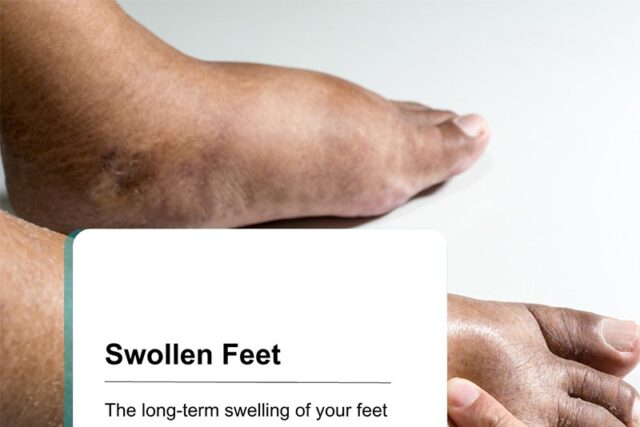

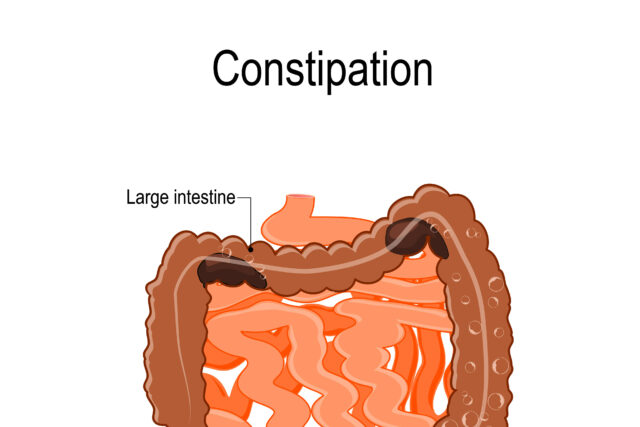
MOST COMMENTED
Animal-Based Proteins / Casein Protein / Dietary Protein / High-Protein Diets / Pea Protein / Plant-Based Proteins / Protein / Protein Deficiency / Protein Supplements / Proteins / Whey Protein / Whey Proteins
Is Protein Powder Safe for Teenagers and Children?
Animal-Based Proteins / Casein Protein / Dietary Protein / High-Protein Diets / Pea Protein / Plant-Based Proteins / Protein / Protein Deficiency / Protein Supplements / Proteins / Whey Protein / Whey Proteins
Unlock the Power of Proteins for Optimal Gut Health
Multivitamin
Total Health: Multivitamin for Active Lifestyles
Multivitamin
WellnessFusion: Complete Multivitamin Support
Dietary Supplement
Revitalize Your Health: The Magic of Red Yeast Rice Capsules
Foot care / Foot Health
Revitalize Your Foot Care Routine: Essential Tips for Optimal Foot Health
Foot Problem / Diabetics / Foot Health
Diabetics: Mastering Footwear Selection for Enhanced Foot Health and Ultimate Comfort
Exercises and Footwear Tips for Hammertoe Relief / Foot care / Foot Health / Foot Pain / Foot Problem / Hammertoes
Unlock Effective Exercises and Footwear Tips for Hammertoe Relief
Hammertoes / Foot Health / Foot Pain / Foot Problem
Unlock Relief: Essential Guide to Hammertoes Causes, Symptoms, and Treatments
Foot Problem / Foot Health
Revolutionize Your Recovery: Natural Remedies for Plantar Fasciitis – Fresh Home Keepers